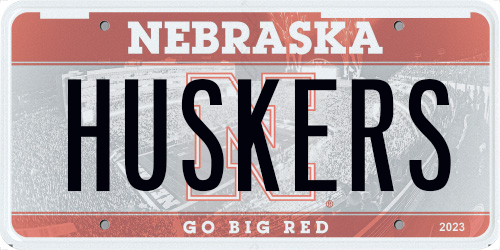Record Keeping
Under the provisions of the International Registration Plan (IRP), all carriers electing to license their vehicles on an apportionment basis are subject to audit. Nebraska will audit the apportioned applications, summaries, and supporting source documents of carriers based in Nebraska. Upon the completion of an audit, Nebraska will provide a copy of the audit results to all other member jurisdictions in which the carrier operates.
Carriers must maintain distance records by either using manual driver prepared source documents or a vehicle tracking system (including GPS). These distance source documents must support apportioned registration applications, or the privilege to apportion can be denied. Nebraska law requires distance source documents to be preserved for a five (5) year period to substantiate three previous years of registration. Our audit staff requires that all IRP carriers sign and return to our office a ![]() Notice of Record-Keeping Requirements for IFTA/IRP. Please retain a copy of this form for your records.
Notice of Record-Keeping Requirements for IFTA/IRP. Please retain a copy of this form for your records.
All information must be readable and accurate. If adequate records are not maintained and/or made available for audit, you may lose the right to apportioned registration and will be subject to additional registration fees.
If you are maintaining driver prepared mileage records, your record keeping system, at a minimum, must include mileage records on each vehicle for each trip or day and be summarized for each quarter by unit and for the fleet. An acceptable source document to verify fleet mileage is a trip sheet or similar trip record that shall contain the following basic information:
- date of trip (starting & ending)
- trip origin and destination
- beginning and ending odometer or hubometer reading of the trip
- route of travel
- total trip miles
- miles by jurisdiction
- unit number or VIN
- registrant's name
A trip sheet or similar mileage record must be completed for each day or trip (depending on your activity) for in-state and out-of-state activity, including loaded, empty, dead-head and/or bobtail miles. Miles operated on toll roads must be included. Miles per state can be calculated using odometer and /or hubometer reading, state maps, computerized mileage software, or GPS, as long as the method used is consistent for the entire fleet, and documentation supporting calculations is available for audit. Make sure the sum of the miles per state equals total odometer miles for each trip or day.
- When using distance records produced by a vehicle tracking system that utilizes latitudes and longitudes (GPS), a record must be created and maintained at a minimum every 15 minutes when the vehicle’s engine is on and contain the following data elements: the date and time of each system reading;
- the latitude and longitude to include a minimum of 4 decimal places (0.0001) of each system reading;
- the odometer reading from the engine control module (ECM) of each system reading. If no ECM odometer is available a beginning and ending dashboard odometer or hubodometer for the trip will be acceptable;
- the vehicle identification number or vehicle unit number
This data must be accessible in an electronic spreadsheet format such as XLS, XLSX, OR CSV. Formats from a vehicle tracking system that provides a static image such as PDF, JPEG, PNG, or Word are not acceptable.
All of the raw data from the GPS system needs to be available for 5 years for IRP. If the system you are using does not retain your data for that period of time you need to make sure that you are downloading your information quarterly and retaining it as your backup.
Monthly, quarterly, and yearly mileage summaries are not acceptable at face value, and must be supported by driver-prepared original source documents or raw data GPS information, in order to be of any use during an audit.
Audit
Every IRP licensee is subject to audit. In the event you are chosen for an audit, you will be contacted by Motor Carrier Services audit staff prior to the beginning of an audit so that all the required records are available. A written confirmation will be sent to you. If you fail to provide records for an audit, the statute of limitations is extended until records are provided.
If your records are unacceptable for audit purposes:
- 20% additional registration fees will be assessed
- The burden of proof lies with the licensee
Once your audit is completed, the findings are reported in writing to you and affected jurisdictions. Nebraska will collect any additional registration fees owed to all member jurisdictions.
Appeal Procedures
You may appeal an action or audit finding issued by any member base jurisdiction by making a written request for a hearing within thirty (30) days after you receive final notice of audit findings. If the hearing is not requested in writing within thirty (30) days, the original finding or action is final. If you appeal an assessment for one or more jurisdictions, Nebraska will participate in the appeal process on behalf of the other jurisdictions. A hearing will be held as soon as possible, but could be continued for reasonable cause shown by either party. Motor Carrier Services will give at least twenty (20) days written notice of the time and place of hearing.
In an appeal, you may appear in person and/or be represented by counsel at the hearing and entitled to produce witnesses, documents or other pertinent material to support your appeal. Motor Carrier Services will notify you of the findings of fact and ruling on the appeal.
If you have questions regarding record keeping or an audit, please contact our audit staff at 402-471-4435.
.















 IRP Record Keeping/Audit
IRP Record Keeping/Audit Powered by
Powered by